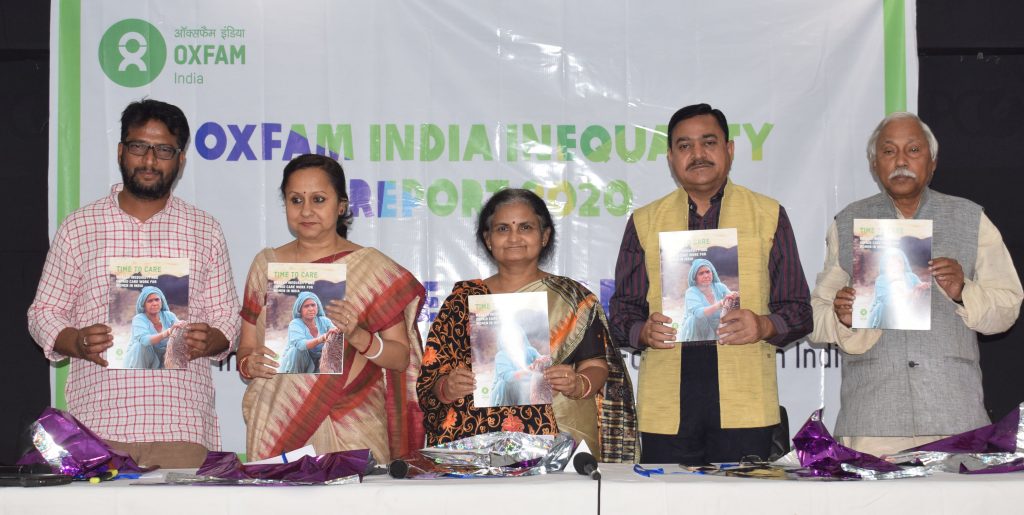Bhubaneswar: With the rising inequality between the rich and poor, experts here discussed as how the governments are massively undertaking the wealthiest individuals and corporations thereby failing to collect revenues which could help tackle poverty and disproportion.
Mooting on a report released by Oxfam at Press Club here, Monday, former Finance Minister of Odisha, Panchanan Kanungo; former Chief Secretary to Odisha government, Jugal Kishore Mohapatra, and experts from other fields shared their views on how the ‘rich are getting richer and poor becoming poorer.’
According to the report, India’s richest 1 per cent hold more than four-times the wealth held by 953 million people who make up for the bottom 70 per cent of the country’s population, while the total wealth of all Indian billionaires is more than the full-year budget.
“The combined total wealth of 63 Indian billionaires is higher than the total Union Budget of India for the fiscal year 2018-19 which was at Rs 24,42,200 crore. The sexist economies are fuelling the inequality crisis by enabling the wealthy elite to accumulate vast fortunes at the expense of ordinary people and particularly poor women and girls,” the report said.
To illustrate the plight of the females in the country, the report further added that women and girls put in 3.26 billion hours of unpaid care work each and every day—a contribution to the Indian economy of at least Rs 19 lakh crore a year, which is 20 times the entire education budget of India in 2019 (Rs 93,000 crore).
As per the report, it would take a female domestic worker 22,277 years to earn what a top CEO of a technology company makes in one year. With earnings pegged at Rs 106 per second, a tech CEO would make more in 10 minutes than what a domestic worker would make in one year.
“Our broken economies are lining the pockets of billionaires and big business at the expense of ordinary men and women. Women and girls are among those who benefit the least from today’s economic system. The gap between rich and poor cannot be resolved without deliberate inequality-busting policies, and few governments are committed to these,” said, Oxfam’s India CEO Amitabh Behar.
With ever so increasing global population, experts were also of the opinion that the climate change will worsen the situation for the poor. By 2025, up to 2.4 billion people will live in areas without enough water; thereby women will have to have to walk even longer distances to fetch it, the report insinuated. About 80 per cent of indigenous people live in Asia and the Pacific, a region vulnerable to climate change.
